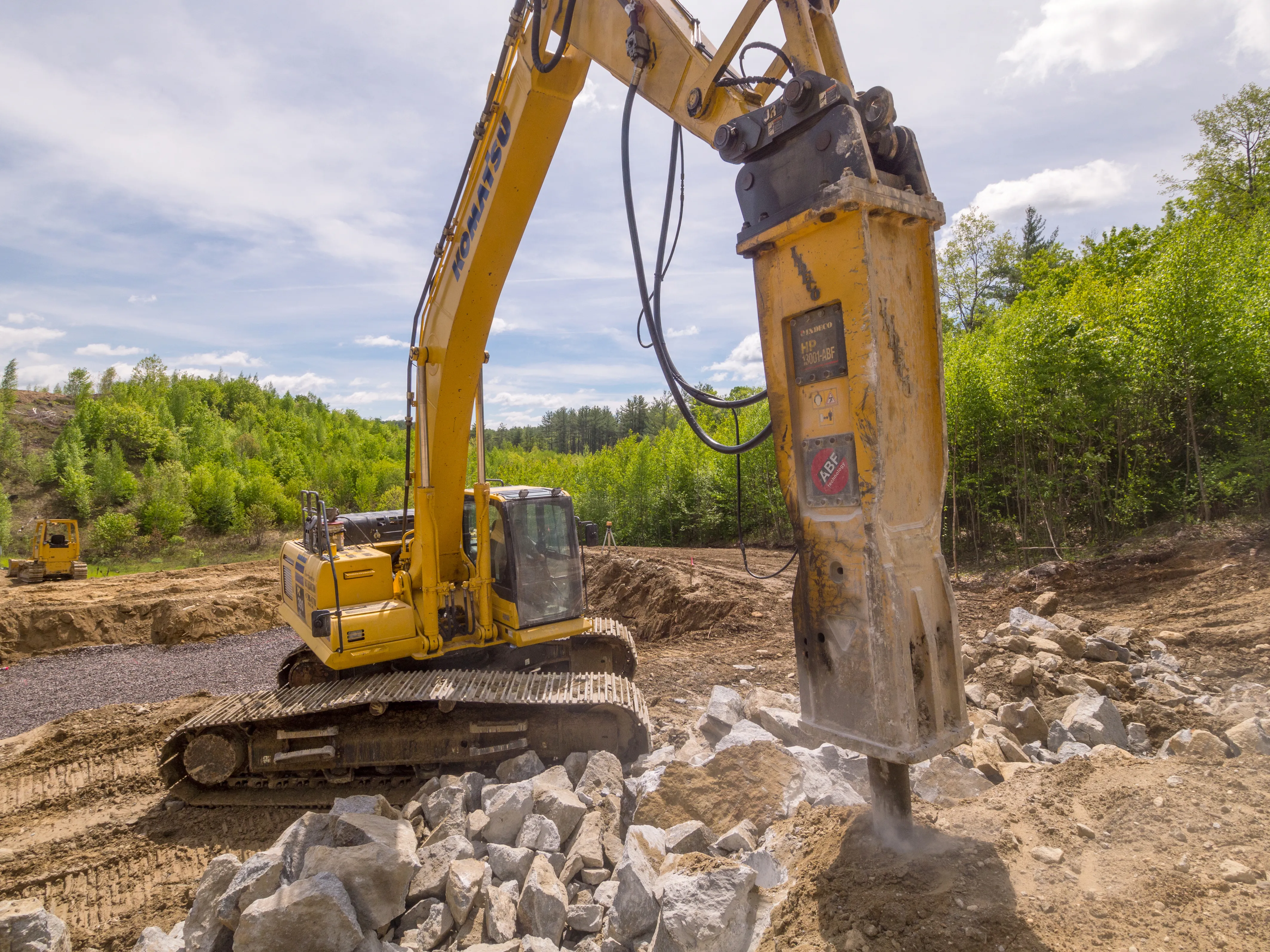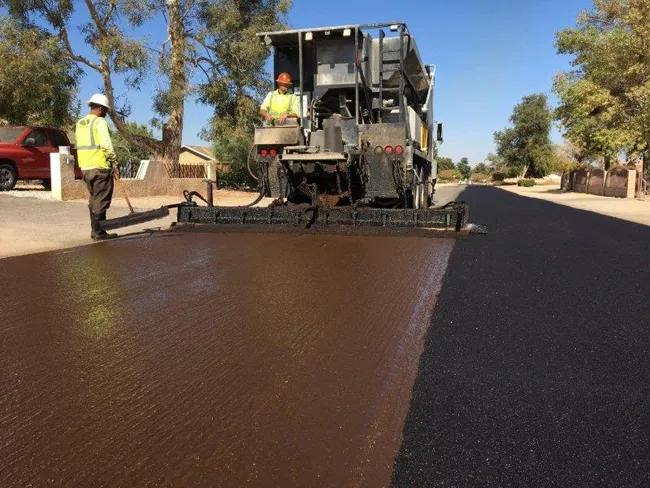
Located in the northeast corner of the US, New Hampshire is one of the country’s smallest states. Noted for a rocky terrain, New Hampshire’s geology includes a heavy presence of metamorphic, especially igneous, rock formations, which yield different types of granite.
The state has many quarries producing this material for use in construction. Even in areas of New Hampshire where the rock formations do not justify quarrying, the land is rocky and any excavation job requires the removal of large boulders or extraction of rock, often with a high compressive strength.
Due to the regular occurrence as well as the hardness of the rock masses, blasting was long considered the only valid method for excavating to allow for civil engineering and industrial projects, as well as road infrastructure works. However, over the last decade, the hydraulic hammer has become commonly used for trenching, laying utilities, excavating small and medium-sized lots, and profiling slopes.
Parker Mullins gained experience working for one of the major local contractors specialising in blasting. Mullins then opted to start his own company, New Hampshire Rock Reduction. He was aware of the increasing difficulties using explosives due to the environmental issues and safety concerns, as well as high costs. He then realised that in certain situations the hammer offered advantages and could be more efficient and less costly alternative.
The firm then bought an Indeco HP 5000, followed by an HP 9000, then an HP 12000 (note: for markets outside USA Indeco classifies these models respectively as the HP 8000, HP 13001 and HP 16000).
The decision was a calculated one, as he explained: “Prioritising the use of the hammer was definitely the decision that gave our company a future, as it allowed us to take on a whole set of projects that we’d otherwise be excluded from. While blasting certainly offers advantages when the job is to excavate large areas containing formations with little fracturing and certain types of very hard gray granite, in other situations it’s not the best solution, especially when working in residential areas where the lots include very fractured rock masses.
He continued, “Preparations for blasting can also be complex; often we have to create the service road so that the drill rigs can reach the areas where the explosives are to be placed, and that translates into increases in costs and time. In those conditions, in which most of our work takes place, excavators coupled with hammers are much more productive and ensure greater profitability.”
New Hampshire Rock Reduction’s experience also demonstrates how, in certain situations, the hammer is more efficient compared to blasting; it’s also the only method for jobs like profiling slopes or excavating rock in big areas within residential zones or areas that have a protected status.
For one urban development project, explosives could be used only in the upper part since there was a protected wetland below. The firm says it achieved excellent productivity using the HP 16000 on the fractured granite, although the presence of mica and quartzite increased the abrasiveness of the material, which obviously had effects on the chisel.
Mullins said, “Our productivity was similar in another job in a residential area of New Boston, where we used the HP 13001 to excavate a lot containing blue granite with practically no fracturing and considerable hardness. Again, in a situation where blasting would have been impossible, the hammer was effective despite the fact the material had a compressive strength that tested the limits of this excavation method.”
Ensuring that hydraulic hammers operate reliably in tough operating conditions relies heavily on effective and regular servicing and the firm claims to have had strong back up from Indeco’s local network.









